Frontline Blog
2023 in review
December 2023
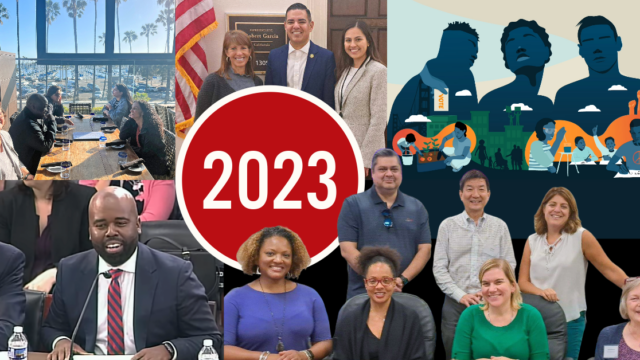
In 2023, the Big Cities Health Coalition (BCHC) and its members continued to address the many public health issues left in the wake of the COVID-19 pandemic, including elevated deaths, injuries, and chronic illness from drug overdose, gun violence, and tobacco and nicotine use.
Even as cities felt the deep effects from these issues and the health disparities that are the ongoing legacy of racism, BCHC has had to fight to maintain (let alone improve) federal funding to governmental public health. A long overdue injection of support from CDC’s public health infrastructure grants has allowed many big city health departments to sustain and build upon critical work to protect the public’s health.
While BCHC was founded more than 20 years ago, 2023 marked our first year as an independent nonprofit. In the past year, we have doubled our staff to facilitate deeper engagement with member leadership, including senior deputies, workforce directors, data modernization specialists, and communications staff.
We look forward to building on this year’s successes and pressing on its challenges as we continue to support our members in their work to protect and promote the public’s health.
January
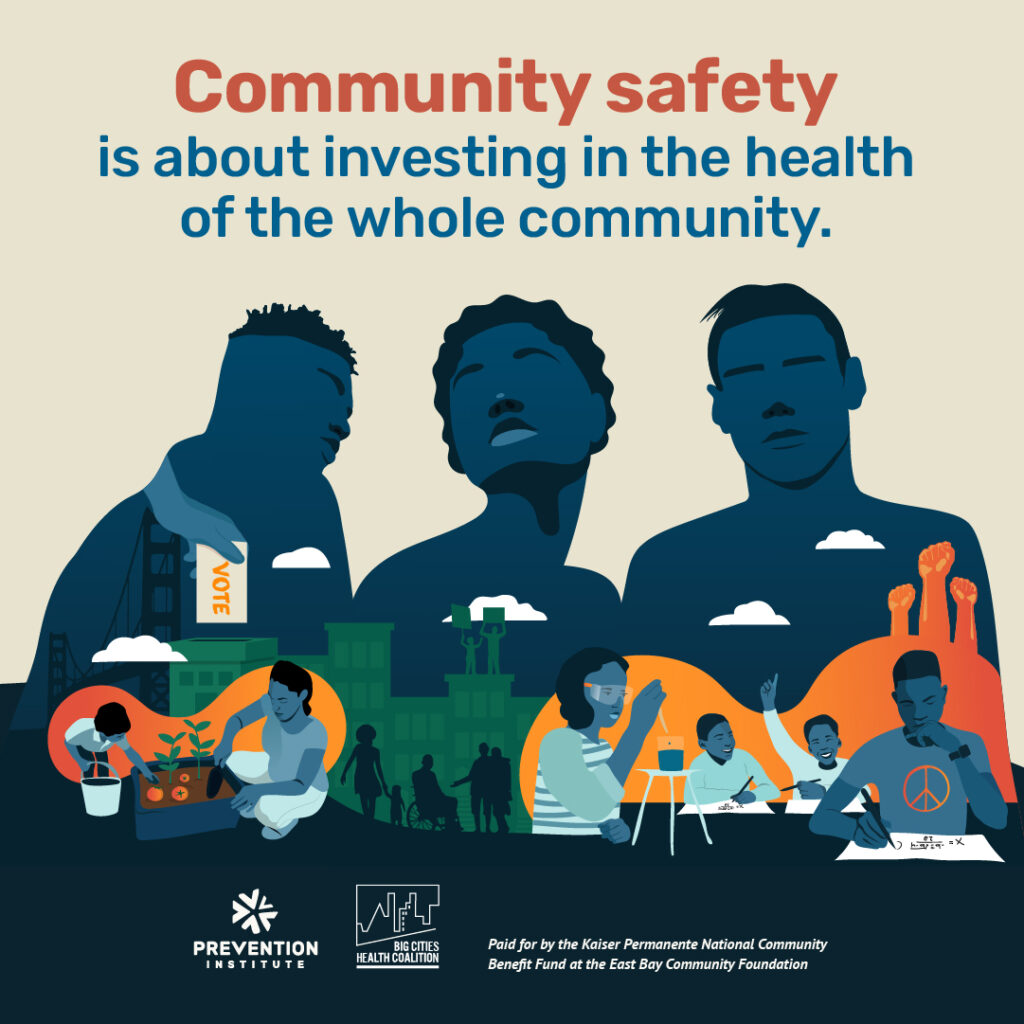
A national ad campaign (above), designed to change the conversation about violence prevention and created by BCHC and Prevention Institute, reaches about 12 million Americans.
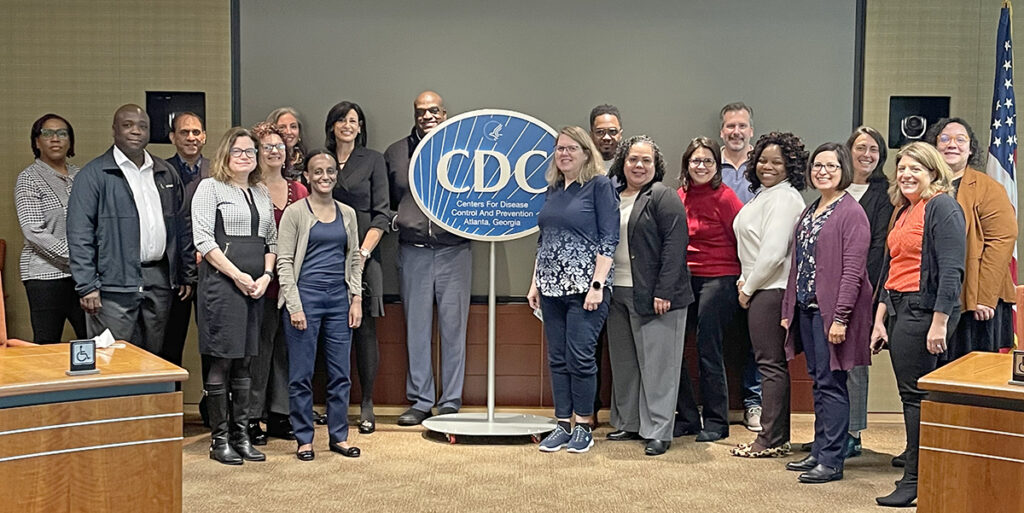
The BCHC senior deputies cohort convenes in Atlanta with CDC leadership (above).
Mysheika Roberts, MD, MPH, Commissioner at Columbus Public Health, and Allison Arwady, MD, MPH, then Commissioner at Chicago Department of Public Health, join forces to explain the consequences of continuing to underfund public health.
In our second Cities: The Future of Health webinar, the Multnomah County Health Department describes their collaboration with Black farmers to improve equitable accessibility and affordability of healthy food.
Using data from our Big Cities Health Inventory data platform, a team of researchers shows that cities and counties with paid sick leave laws had higher rates of vaccination among the working-age population than cities without paid sick leave.
BCHC grows! Alice Kungu joins our staff as the Grants and Finance Director, and seema sandhu, MPH, joins as Project Associate.
February
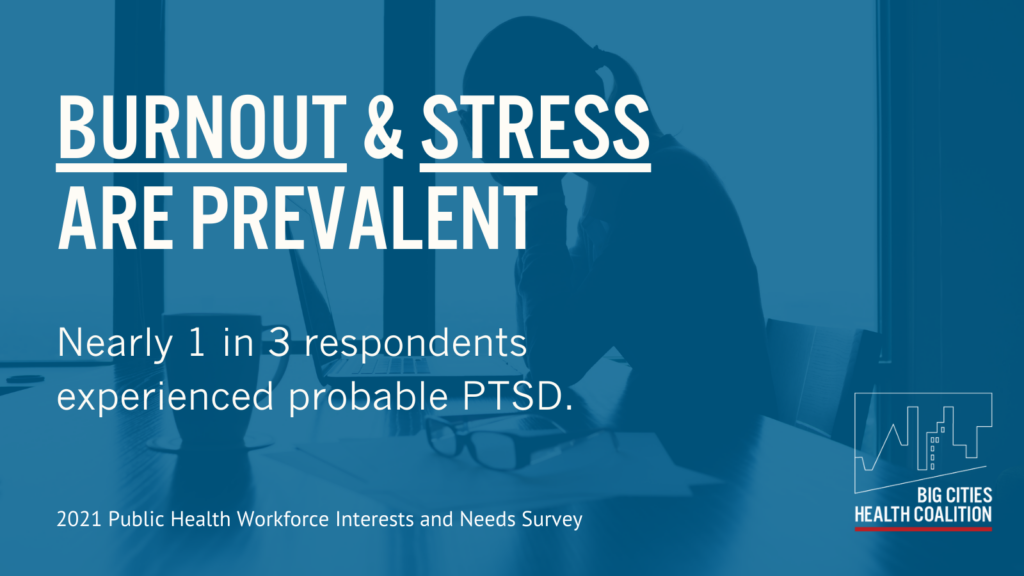
Burnout and stress rose sharply among governmental public health workers in 2021, with 29% reporting symptoms that indicate probable Post Traumatic Stress Disorder (PTSD), according to BCHC analysis of data from the Public Health Workforce Interests and Needs Survey (PH WINS).
In a webinar, the Maricopa County Department of Public Health details how they work closely with community during their health needs assessments.
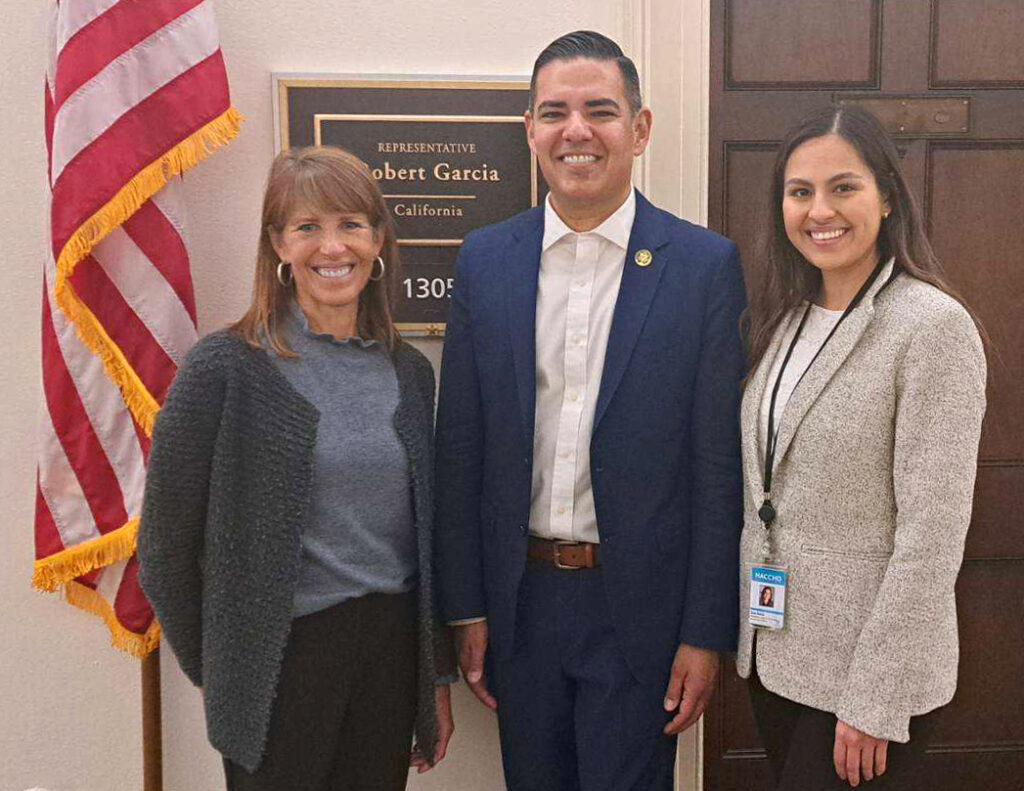
BCHC members and staff meet in DC to discuss public health strategy with each other and members of the Administration. Many members then participate in NACCHO’s annual Hill Day to express local public health needs to their Congressional representatives.
March
BCHC releases its top public health policy and funding priorities for the 118th Congress. The brief focuses on pandemic preparedness, public health infrastructure and capacity, injury and violence prevention, overdose prevention, and tobacco flavor regulation.
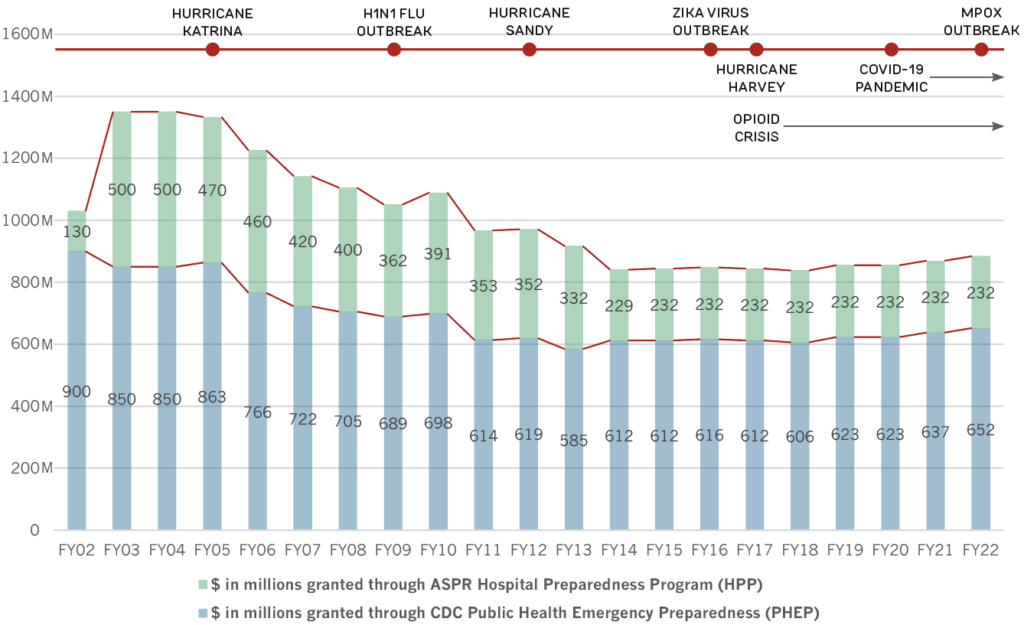
As the Pandemic and All-hazards Preparedness Act (PAHPA) comes before Congress, BCHC releases a brief emphasizing the need for reauthorization and better funding for its programs. The brief demonstrates how funding for public health and hospital emergency preparedness have stalled over the last two decades, even as health emergencies have increased in frequency and intensity (see graph above).
BCHC makes a detailed case to the Senate for sustained, predictable funding for the governmental public health workforce, in response to a request for information from the Committee on Health, Education, Labor, and Pensions (HELP).
As drug overdose deaths continue to mount, BCHC recommends that the Drug Enforcement Agency (DEA) and Substance Abuse and Mental Health Services Administration (SAMHSA) remove barriers to lifesaving treatments for people with opioid use disorders.
April
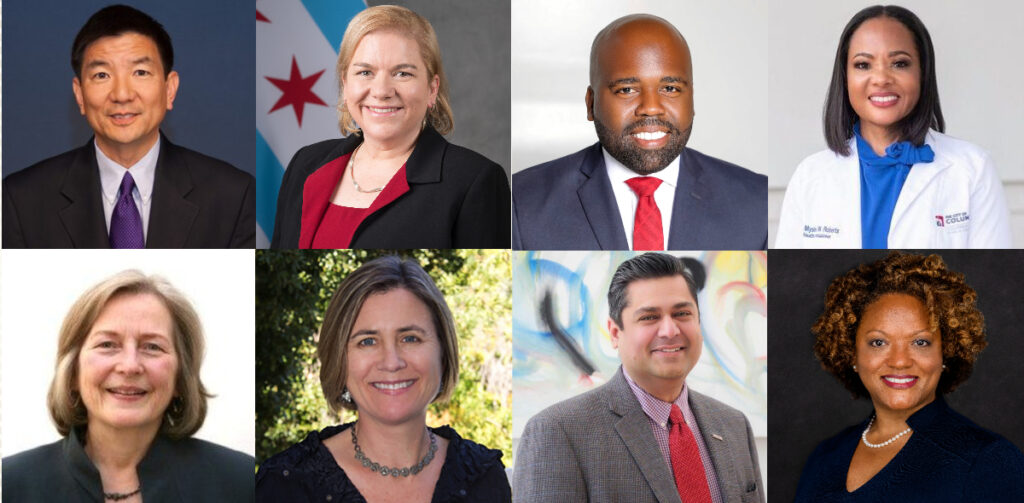
Now an independent 501(c)3, BCHC announces its newly elected Board of Directors (pictured above).
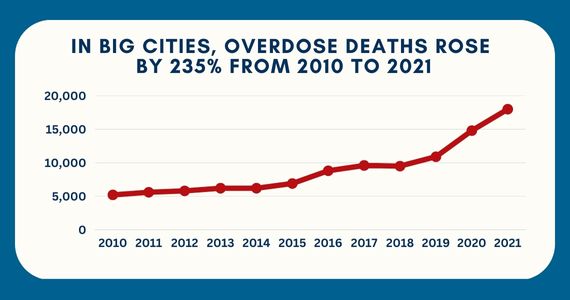
BCHC and Drexel University’s Urban Health Collaborative release 2021 data on the Big Cities Health Inventory database platform. Among other things, the new data show that deaths from guns and drug overdoses surged in big cities that year.
May
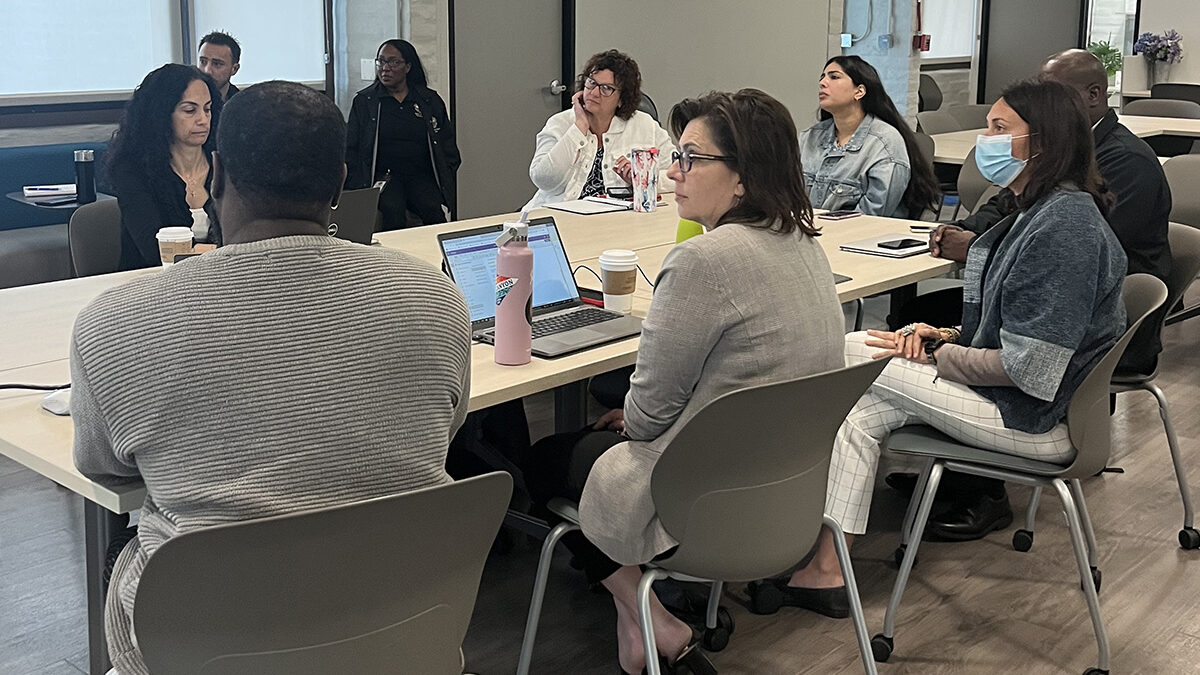
BCHC holds its first-ever site visit for its senior deputies cohort at the City of Long Beach Department of Health and Human Services.
BCHC attends the first in-person grantee convening with the 107 jurisdictions that received public health infrastructure grants from CDC, in partnership with the Association of State and Territorial Health Officials (ASTHO), Public Health Accreditation Board (PHAB), and the National Network of Public Health Institutes (NNPHI). BCHC senior deputies also participate in meetings with their peers and colleagues at state health departments at ASTHO’s Techxpo.
As the national COVID-19 public health emergency draws to a close, leaders from BCHC member jurisdictions explain what this means for health equity in urban communities.
June
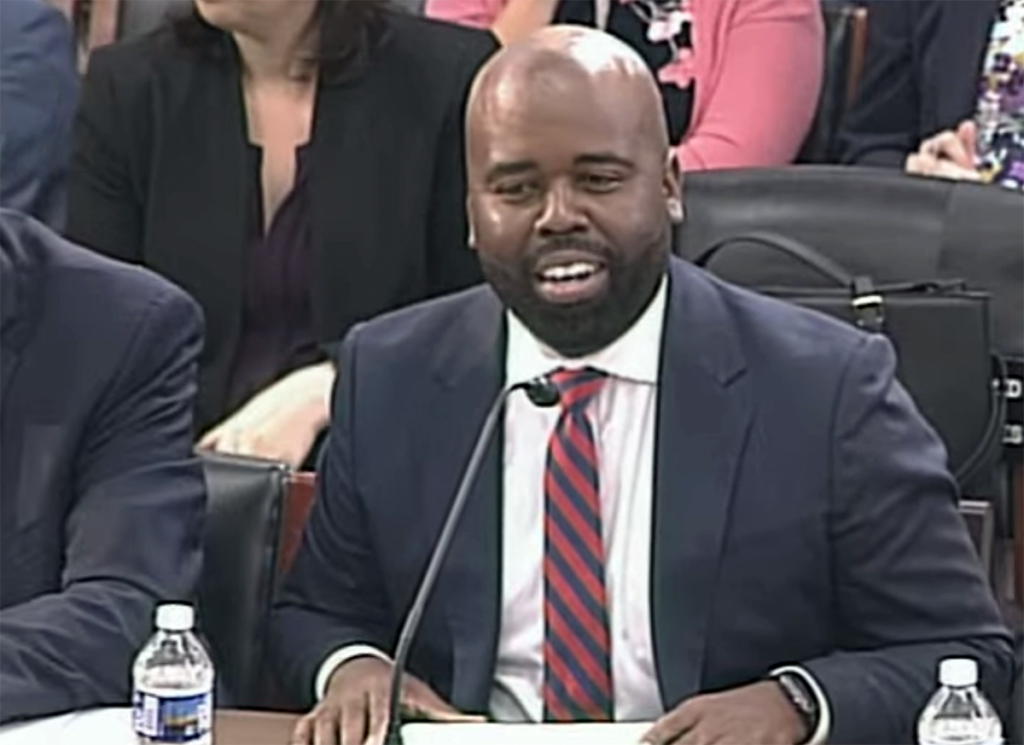
Mecklenburg County Public Health Director and BCHC Vice Chair Raynard Washington, PhD, MPH (pictured above), testifies before Congress on why reauthorizing the Pandemic All-hazards Preparedness Act (PAHPA) matters so much to public health work on the ground.
The BCHC senior deputies cohort holds its second site visit of the year at Louisville Metro Public Health and Wellness.
July
Twenty-four BCHC members urge FDA to take stronger enforcement action against illegal e-cigarette products, citing increased youth and young adult usage.
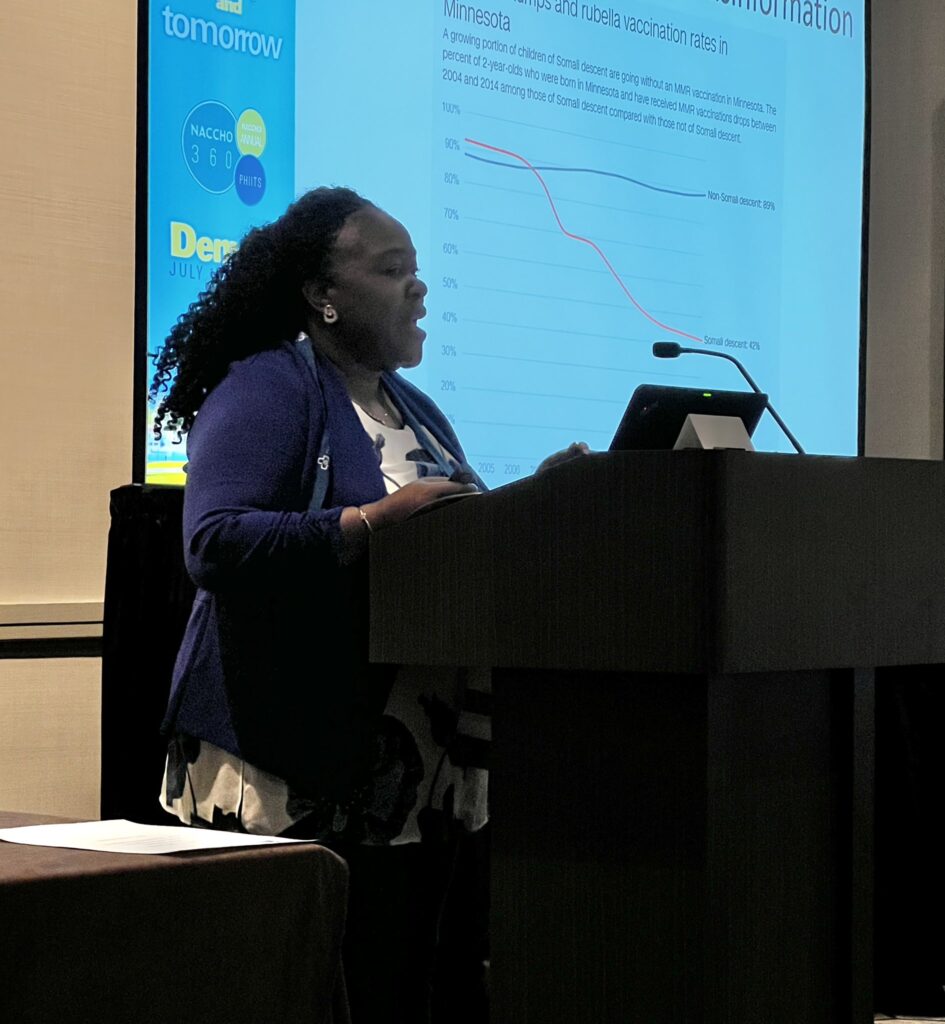
BCHC members and staff present at the NACCHO360 meeting in Denver. Seun Adelegan-Aluko, MPH (pictured above), for example, discusses how Columbus Public Health handled the 2022 measles outbreak in central Ohio.
August
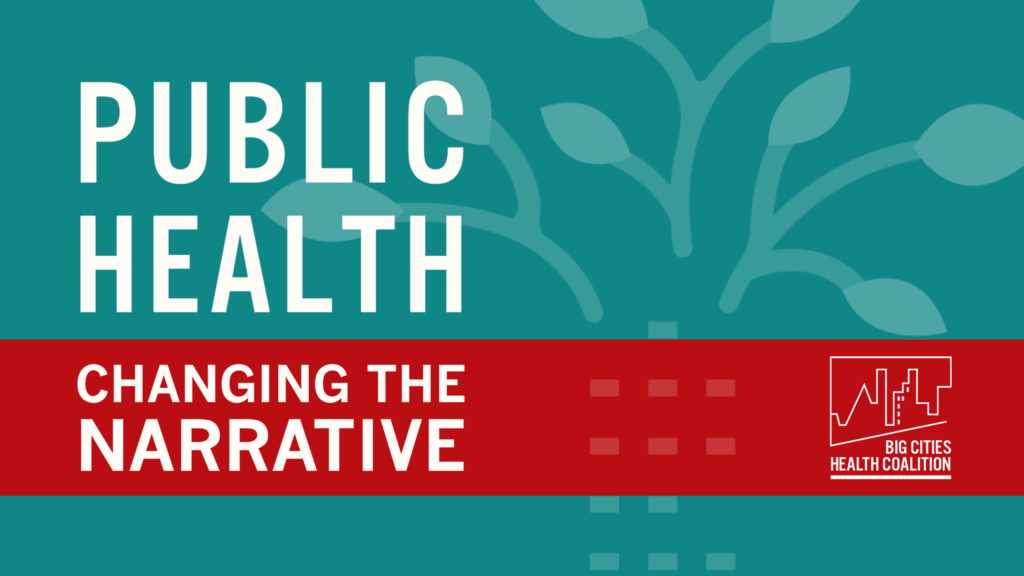
BCHC releases messaging recommendations based on polling and focus group research conducted in its 35 member cities. The recommendations focus on how to communicate about public health in a way that garners support with key audiences. This product quickly becomes one of our most downloaded resources.
September
BCHC holds its second member meeting of the year in Las Vegas, including a meeting at Southern Nevada Health District’s headquarters that featured their amazing team.
In a webinar, Columbus’ deputy commissioner and lead policy strategist, Edward Johnson, MA, explains how their city got flavored tobacco restrictions passed.
October

BCHC Executive Director Chrissie Juliano, MPP, presents at the County Health Executives Association of California annual meeting, then visits with staff at the Santa Clara County Public Health Department (pictured above).
BCHC relaunches its senior deputies cohort with 31 of 35 jurisdictions participating. With a mix of new and returning participants, the cohort nearly doubles in size.
BCHC hires its first-ever Director of Public Health Data, Jennifer Schitter, MPH. In this role, Jenny will convene the data modernization leads at our 35 member health departments and continue to develop the Big Cities Health Inventory data dashboard with our partners at Drexel University’s Urban Health Collaborative.
In an op-ed published in Route Fifty, BCHC Executive Director Chrissie Juliano, MPP, discusses our recent polling that shows the American public supports the mission of public health.
In a webinar, Austin Public Health details how they continue to operationalize their city’s 2020 declaration of racism as a public health crisis.
November
Lonias Gilmore, MPH, BCHC Health Equity Director, explains how to use an assets-based approach to confront cultural racism and provides an update on the Advancing Racial Justice for Health initiative.
As methadone programs across the U.S. strain to serve people who most need their services, BCHC urges Congress to pass the Modernizing Opioid Treatment Access Act (MOTAA), which would remove barriers to making this life-saving treatment available.
December
BCHC urges the Biden Administration to prioritize a national ban on menthol cigarettes.
BCHC also recommends that the Administration support health equity by removing several barriers between the public and over-the-counter nicotine replacement products, contraceptives, and breast pumps and other breastfeeding supplies.